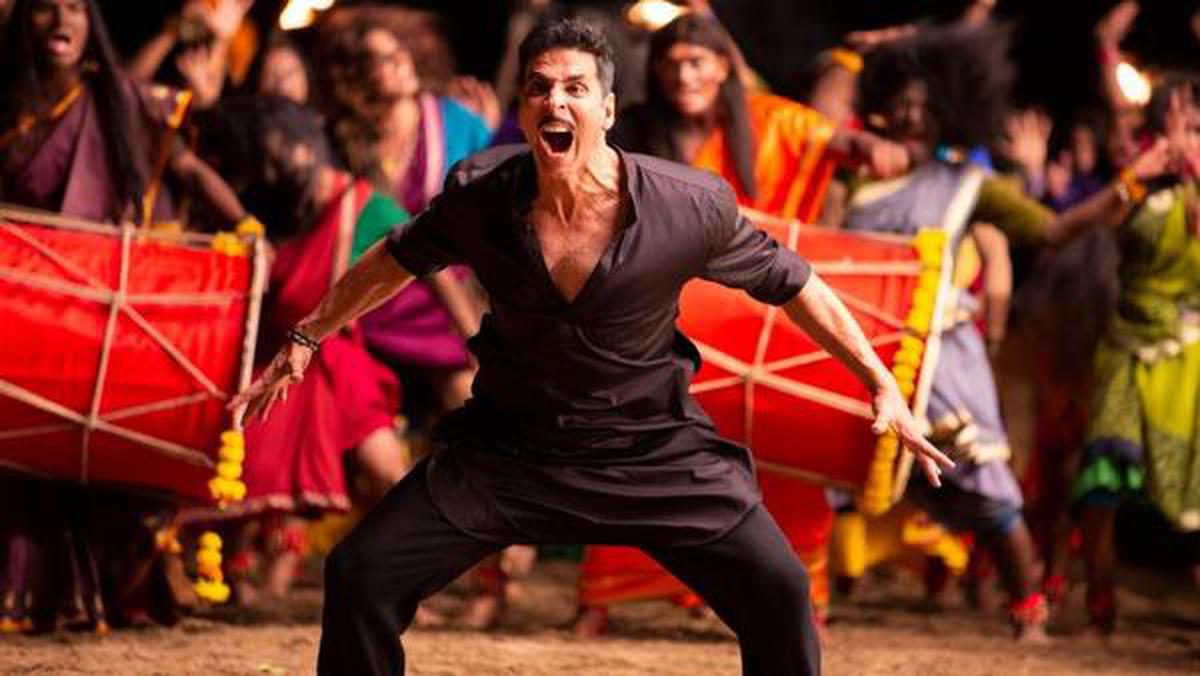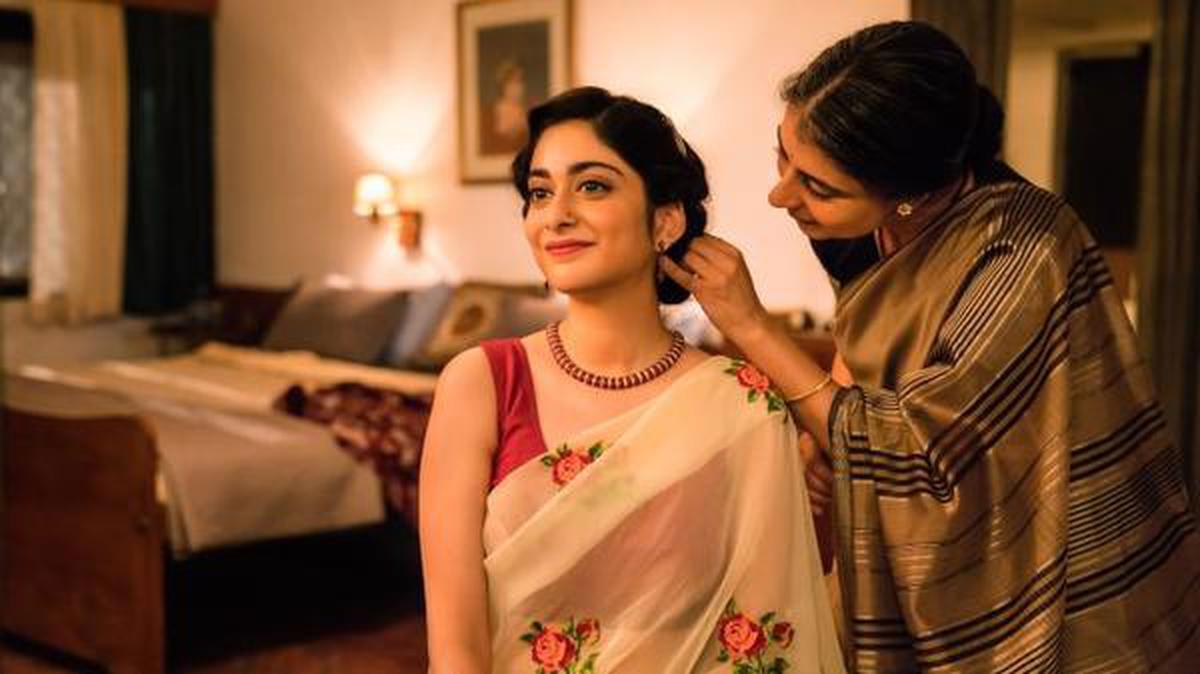Soon after the recent legal trouble that Amazon Prime Video series Tandav found itself in — including an FIR against the company’s India head Aparna Purohit — industry observers expected an apologetic official statement. But they perhaps didn’t expect it to be quite what it finally was. It read: “Amazon Prime Video again deeply regrets that viewers considered certain scenes to be objectionable in the recently launched fictional series Tandav. This was never our intention, and the scenes that were objected to were removed or edited when they were brought to our attention. We respect our viewers’ diverse beliefs and apologise unconditionally to anyone who felt hurt by these scenes.”
Also Read | Get ‘First Day First Show’, our weekly newsletter from the world of cinema, in your inbox. You can subscribe for free here
Hot on the heels of Amazon Prime’s statement, the government made its big play: the Information Technology (Intermediary Guidelines and Digital Media Ethics Code) Rules 2021. This is a new set of regulations for social media and OTT (over-the-top) platforms, bringing Netflix, Hotstar and Co. under the ambit of the Ministry of Information and Broadcasting (MIB), citing powers given to the government by Section 87 of the Information Technology (IT) Act, 2000. The three major prongs of the regulation are age-based content classification (the five categories being Universal, 7+, 13+, 16+ and Adult), parental locks for content marked 13+, and finally a three-tier grievance addressing mechanism.
The first tier is an internal Grievance Officer for each OTT platform, who must address user complaints within 15 days. Complaints that are not resolved within 15 days (or are deemed to be handled unsatisfactorily) can be referred to the second tier, a self-regulatory body, representing various digital news publishers and OTT platforms, headed by a retired Supreme Court or High Court judge. The third tier is the MIB itself, which will form an inter-departmental committee to ensure that OTT platforms adhere to these guidelines. This committee will have the power to take down objectionable content and even take suo motu cognisance of any issue pertaining to an OTT release.
‘Soft-touch’ regulation

‘Tandav’ actor Mohammad Zeeshan Ayyub was admonished by the Supreme Court for “accepting the script” of the Amazon Prime Video series.
The government referred to the rules as “soft-touch regulatory architecture”. A couple of days after the announcement, the Union Minister of Information and Broadcasting, Prakash Javadekar, held a meeting with representatives of Netflix, Hotstar, Amazon Prime Video, Voot, ZEE5, AltBalaji and so on, where he answered queries about the guidelines.
According to Bengaluru-based lawyer and independent researcher Divij Joshi, the ‘soft-touch’ appellation is largely accurate. “In my opinion it is a kind of softer intervention where the government is able to monitor these platforms more closely and regulate their functioning through legal and informal mechanisms,” he says.
This view is backed by the fact that pre-censorship of all new films or shows — along the lines of what theatrical releases have to subject themselves to via the Central Board of Film Certification — would have been undoubtedly harsher, and time-consuming.
However, Joshi adds that the government has underlined its power to block objectionable content. “The guidelines claim to be ‘self-regulatory’, but they feed into a regulatory system that can substantially expand the government’s power to censor content,” says Joshi. “This is done by tying the guidelines to the [IT Act’s] Section 69A requirement to block content.” The regulations thus give the government overriding powers to step in.
It is useful to remember that the government has been attempting to regulate this space for many years now. Defending the new guidelines, both Javadekar and Minister for Information Technology Ravi Shankar Prasad cited Supreme Court judgments over the past three-four years that spoke of the unregulated nature of the OTT and streaming industry.
The fact that the regulations have finally been rolled out now may have something to do with a post-Covid world where even marquee Bollywood stars like Akshay Kumar were forced to release their movies online (as Kumar did with Laxmii last year). The number of online-only premieres has exploded, and even big global studios are releasing their movies online simultaneously (the recent Wonder Woman 1984, for example). Basically, the growing influence and industry share of OTT platforms may well have hastened the rollout of the new guidelines.

The Akshay Kumar-starrer ‘Laxmii’, released in November 2020, was the first big-budget Indian film to release exclusively on a streaming platform.
Push vs. pull
One of the government’s stated objectives for these guidelines is to “level the playing field” between TV/ film producers and OTT platforms; the former were, and are, subject to a broadcaster’s code, after all. But by doing so, the distinction between ‘pull’ and ‘push’ content has been ignored to an extent— ‘push’ content like TV or radio refers to situations where the channels decide who watches what and for how long. OTT platforms, however, are ‘pull’ content providers; users ‘pull’ content off an online marketplace depending on what they want to watch.
OTT programmes are watched in private spaces, and come with disclaimers and maturity ratings. External regulations seem unwarranted. “Having restrictions on the OTT space makes no sense,” says director Vishnuvardhan, who has worked in both the Tamil and the Hindi film industries (he’s the director of Shershaah, an upcoming Karan Johar production). “If there’s something truly objectionable in some story, I can understand [restrictions]. But at some level, I feel that entities such as a censor board are against the rights of an artist.”
He says that OTT platforms had two major advantages up until now. “First, the kind of storytelling that OTT platforms gave you the opportunity for; you could go to any extremes to tell your story. Second, the extended runtime for a series (as opposed to a theatrical film) gave you more of a chance to explore the story, to explore character.” This freedom has paid rich dividends — producing some of the finest cinema and series of recent years, such as Sacred Games, Scam 1992, Bulbbul and Paatal Lok, to name just a few. And the digital platform has done what Indian cinema could not do for decades — it has mainstreamed regional cinema, with the best of Malayalam, Tamil, Marathi and Bengali cinema getting unprecedented exposure.
All this can only enrich viewership experience, but such unfettered creativity will now come under pressure due to the new rules. As Vishnuvardhan explains, as movies typically involve hundreds of people working on a daily basis across several months, filmmakers will end up making the compromises necessary for the project’s unfettered release. “It is a massively collaborative medium, so many people’s hard work and livelihoods are tied up with it.”

A still from the Netflix film ‘Bulbbul’ (June 2020).
Nipped in the bud
Moving forward, these last few years may well be remembered as a rare unregulated time for OTT platforms. Indeed, the early years of the OTT boom were marked by a certain creative freedom that might prove increasingly elusive. And it wasn’t that long ago either: actor Vivaan Shah remembers a simpler 2018 when he was filming the ‘millennial comedy’ series Only For Singles. “It was a fairly uncomplicated show,” Shah recalls. “Entertainment was its primary objective, it didn’t have too many artistic points to prove.” Only For Singles had a liberal sprinkling of risqué humour as well as cuss words.
“I often joke that abuse is a kind of ad lib technique for actors,” says Shah. “Cuss words often add that extra punch you’re looking for in the line — or they can simply give you an extra half-second to think about what you’re going to say.”
Now, though, the actor fears for the fate of even relatively light-hearted fare like Only For Singles, in the name of weeding out “objectionable content”. Shah, of course, was also part of the cast for the Mira Nair series A Suitable Boy, which was released in India by Netflix last year. The show ran into all manner of controversies — a temple kissing scene featuring a Muslim character was leapt upon by Hindu nationalists. Actor Sadaf Jafar was arrested and allegedly beaten up by the UP Police after her participation in a Lucknow protest against the Citizenship (Amendment) Act. Clearly, the fear of government censure has never been higher. In the case of Tandav, actor Mohammad Zeeshan Ayyub was admonished by the Supreme Court for “accepting the script”, saying “you cannot hurt religious sentiments” (Ayyub had pleaded that as an actor, he cannot be held liable for allegedly offensive statements spoken by his onscreen character).
“I can see the difference, even in a relatively short interval, between the time I filmed Only For Singles, and the time A Suitable Boy was released,” says Shah. “Actors, writers, directors — for them the artistic freedom that the OTT platforms gave them was a huge thing. These new guidelines will hurt the smaller guys, the independent creators the most. Politically conscious art does not materialise just like that: an entire industry has to grow and develop across decades for some people to find their voices. But we have set ourselves back by many years now.”
It might get worse. The Supreme Court, while protecting Amazon Prime’s Purohit from arrest, made an astonishing departure to say that the new rules were only guidelines and lacked teeth, asking why there was no provision for punishment or fines. Solicitor General Tushar Mehta responded by agreeing to draft new regulations or even legislation to address this. For the apex court to press for the inclusion of punishment clauses goes against the ‘soft-touch monitoring’ that has been claimed for these regulations.

The Mira Nair-directed series, ‘A Suitable Boy’, ran into all manner of controversies last year.
Blunting the edges
The new OTT guidelines ought to be seen in conjunction with the government’s other efforts to control critical narratives. So, while, say, English-language writers are not subject to the same level of scrutiny — mostly on account of the low sales figures this industry typically produces — they too are beginning to feel the pinch. Especially if they are on the eve of dabbling in the OTT industry themselves. Tanuj Solanki, whose short story collection Diwali in Muzaffarnagar won him a Sahitya Akademi Yuva Puraskar (awarded to a writer under 35), has been in talks with multiple production houses over the last year or so; these filmmakers want to adapt his stories for OTT platforms.
Solanki’s stories involve anti-Muslim violence, childhood sexual abuse, the uber-patriarchal Indian middle-class family, and a whole bunch of other potential red-button issues.
“When I wrote the titular story in Diwali in Muzaffarnagar seven or eight years ago, I hadn’t really set out to write stuff that discussed politics in a very direct manner,” says Solanki. “But I knew that if I wanted to, I could. Today, even if I look at Facebook ‘memories,’ posts from two-three years ago, I find myself getting anxious sometimes, ‘Will I get into trouble for this?’ So yes, I do think that the OTT people adapting my stories… things are definitely tougher for them than they were for me.”
Solanki is writing a crime novel these days and he’s positive that eventually his publishers will ask him to change the name of a character called Godse. “It doesn’t even matter whether the character is evil or a villain or whatever, just the name is enough for there to be a problem. I will be asked to change it for my own good.”
And this, one feels, is the ultimate goal of moves like the new OTT guidelines — for creators to keep second-guessing themselves until their satirical and creative edges have been blunted and dissent is effectively killed ab initio.
The writer and journalist is working on his first book of non-fiction.
